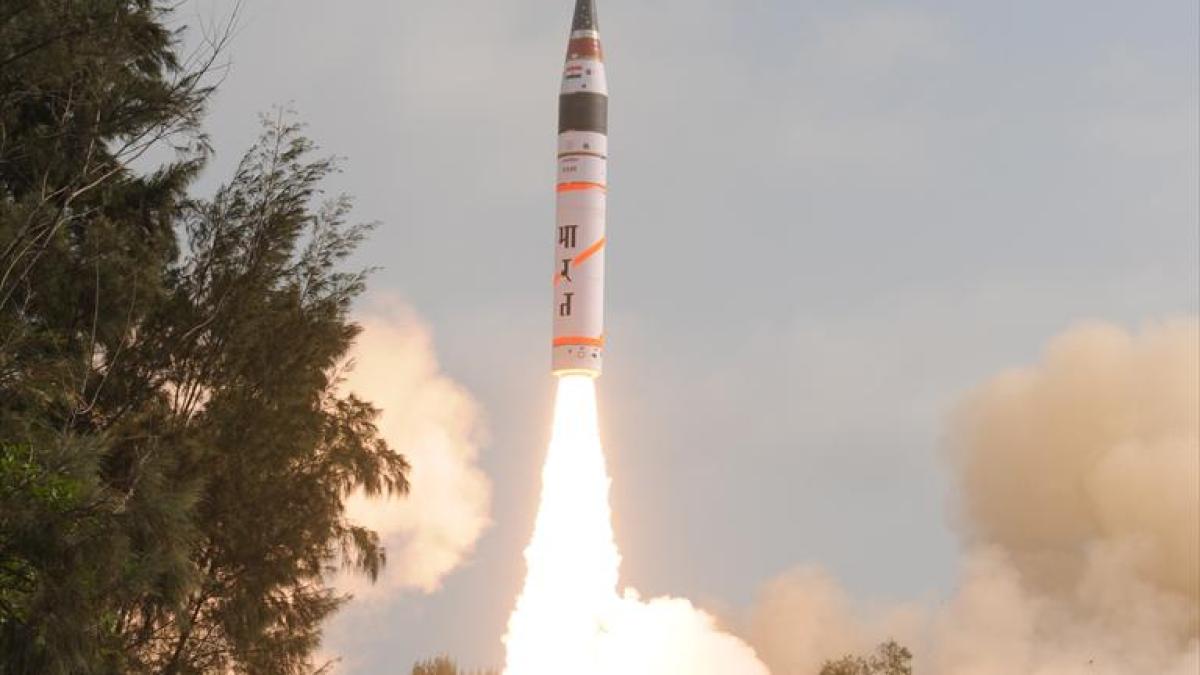The nuclear-capable ballistic missile, with a range of 5,400km (3,300 miles) is launched from eastern India, a government minister says.
India has successfully test-fired a long-range nuclear-capable missile, according to a government minister, as New Delhi aims to boost its defence capabilities amid border tensions with China.
Parliamentary Affairs Minister Pralhad Joshi said the Agni-V intercontinental ballistic missile was fired on Thursday from Abdul Kalam Island in eastern Odisha state.
“The missile will add great value to the defence and strengthen national security to a greater extent,” Joshi tweeted, citing its range of 5,400km (3,300 miles) or more.
Ahead of the test, Indian authorities issued a notification and declared the Bay of Bengal as a no-fly zone, said Indian media reports, adding that its range covers almost the entire China mainland.
Fresh tensions arose between India and China following clashes between their army soldiers on December 9 along their disputed border in Arunachal Pradesh state.
India’s Defence Minister Rajnath Singh said no Indian soldiers were seriously hurt and troops from both sides withdrew from the area soon afterwards. A statement from the Indian army on Monday said troops on both sides suffered minor injuries.
The relations between the two Asian countries have deteriorated after deadly border clashes in 2020 when 20 Indian soldiers were killed. China later admitted four of its soldiers were also killed in the deadliest border clashes in decades.
Rahul Bedi, a defence analyst, said this was the second user test by India’s Strategic Forces Command since it was inducted in 2018. The first test was carried out in 2021.
Bedi said Indian authorities did not take cognizance of the reported presence of a Chinese spy ship in the region and went ahead with the test.
India has developed a family of medium- to intercontinental-range ballistic missiles called “Agni”, which means fire. Agni missiles are long-range, nuclear-capable, surface-to-surface ballistic missiles.
For decades, India and China have fiercely contested the Line of Actual Control, a loose demarcation that separates Chinese and Indian-held territories from Ladakh in the west to India’s eastern state of Arunachal Pradesh, which China claims in its entirety. Ladakh was carved out of Indian-administered Kashmir in 2019 when India’s Hindu nationalist government stripped the region’s semi-autonomy. The Muslim-majority region has seen decades-long armed uprisings against Indian rule. Kashmir is claimed by both India and Pakistan, but they rule only parts of the Himalayan region.
India and China fought a war over the border in 1962.



